Related Research Articles
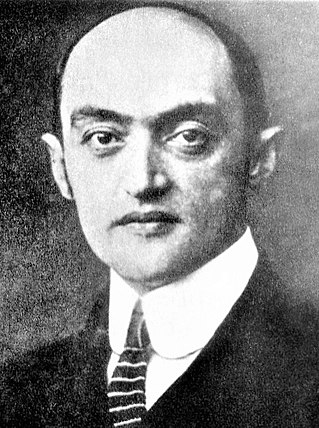
Joseph Alois Schumpeter was an Austrian political economist. He served briefly as Finance Minister of Austria in 1919. In 1932, he emigrated to the United States to become a professor at Harvard University, where he remained until the end of his career, and in 1939 obtained American citizenship.
Social justice is justice in relation to the distribution of wealth, opportunities, and privileges within a society where individuals' rights are recognized and protected. In Western and Asian cultures, the concept of social justice has often referred to the process of ensuring that individuals fulfill their societal roles and receive their due from society. In the current movements for social justice, the emphasis has been on the breaking of barriers for social mobility, the creation of safety nets, and economic justice. Social justice assigns rights and duties in the institutions of society, which enables people to receive the basic benefits and burdens of cooperation. The relevant institutions often include taxation, social insurance, public health, public school, public services, labor law and regulation of markets, to ensure distribution of wealth, and equal opportunity.
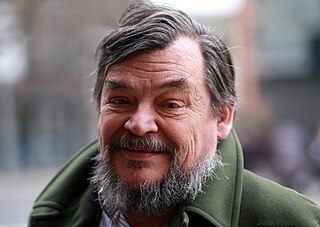
Erik Steenfeldt Reinert is a Norwegian economist, with development economics, economic history and history of economic policy as his specialties.
Dependency theory is the idea that resources flow from a "periphery" of poor and exploited states to a "core" of wealthy states, enriching the latter at the expense of the former. A central contention of dependency theory is that poor states are impoverished and rich ones enriched by the way poor states are integrated into the "world system". This theory was officially developed in the late 1960s following World War II, as scholars searched for the root issue in the lack of development in Latin America.

Thomas Winfried Menko Pogge is a German philosopher and is the Director of the Global Justice Program and Leitner Professor of Philosophy and International Affairs at Yale University, United States. In addition to his Yale appointment, he is the Research Director of the Centre for the Study of the Mind in Nature at the University of Oslo, Norway, a Professorial Research Fellow at the Centre for Applied Philosophy and Public Ethics at Charles Sturt University, Australia, and Professor of Political Philosophy at the University of Central Lancashire's Centre for Professional Ethics, England. Pogge is also an editor for social and political philosophy for the Stanford Encyclopedia of Philosophy and a member of the Norwegian Academy of Science and Letters.
Aid effectiveness is the degree of success or failure of international aid. Concern with aid effectiveness might be at a high level of generality, or it might be more detailed.

Kamer Daron Acemoğlu is an American economist of Armenian descent who has taught at the Massachusetts Institute of Technology since 1993, where he is currently the Elizabeth and James Killian Professor of Economics. He received the John Bates Clark Medal in 2005, and was named an Institute Professor at MIT in 2019.
Amiya Kumar Bagchi is an Indian political economist.
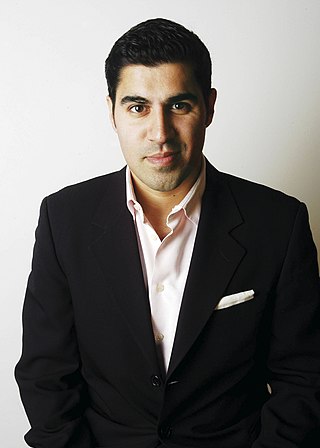
Parag Khanna is an Indian-American specialist in geopolitics and globalization. He is the managing partner of FutureMap, and former managing partner of Hybrid Reality as well as Co-Founder & CEO of Factotum.

Esther Duflo, FBA is a French–American economist who is the Abdul Latif Jameel Professor of Poverty Alleviation and Development Economics at the Massachusetts Institute of Technology (MIT).

Jonathan Morduch is a professor of public policy and economics at the Robert F. Wagner Graduate School of Public Service at New York University. He is a development economist most well known for his significant academic contributions to assessing the impact of microfinance since the early years of the movement. He has written extensively on poverty and financial institutions in developing countries and on tensions between achieving social impacts and meeting financial goals in microfinance.
Redistribution of income and wealth is the transfer of income and wealth from some individuals to others through a social mechanism such as taxation, welfare, public services, land reform, monetary policies, confiscation, divorce or tort law. The term typically refers to redistribution on an economy-wide basis rather than between selected individuals.
Subir Vithal Gokarn was one of the four Deputy Governors of the Reserve Bank of India along with Anand Sinha, K.C. Chakrabarty and H.R.Khan. He was replaced by Urjit Patel in January 2013.
The Health Impact Fund is a proposed pay-for-performance mechanism that would provide a market-based solution to problems concerning the development and distribution of medicines globally. It would incentivize the research and development of new pharmaceutical products that make substantial reductions in the global burden of disease. The Health Impact Fund is the creation of a team of researchers led by the Yale philosopher Thomas Pogge and the University of Calgary economist Aidan Hollis, and is promoted by the non-profit organization Incentives for Global Health (IGH).

Dean Karlan is an American development economist. He is Chief Economist of USAID and Professor of Economics and Finance at Northwestern University where, alongside Christopher Udry, he co-founded and co-directs the Global Poverty Research Lab at Kellogg School of Management. Karlan is the president and founder of Innovations for Poverty Action (IPA), a New Haven, Connecticut, based research outfit dedicated to creating and evaluating solutions to social and international development problems. He is also a Research Fellow and member of the Executive Committee of the board of directors at the Abdul Latif Jameel Poverty Action Lab (J-PAL) at the Massachusetts Institute of Technology. Along with economists Jonathan Morduch and Sendhil Mullainathan, Karlan served as director of the Financial Access Initiative (FAI), a consortium of researchers focused on substantially expanding access to quality financial services for low-income individuals.

Yaga Venugopal Reddy is an Indian economist and a retired Indian Administrative Service (IAS) officer of the 1964 batch belonging to Andhra Pradesh cadre. Reddy served as governor of the Reserve Bank of India (RBI), India's central bank, from September 2003 until September 2008.
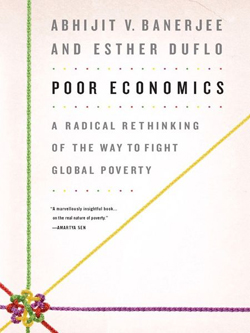
Poor Economics: A Radical Rethinking of the Way to Fight Global Poverty (2011) is a non-fiction book by Abhijit V. Banerjee and Esther Duflo, both professors of Economics at Massachusetts Institute of Technology (MIT) and Nobel Memorial Prize in Economic Sciences laureates. The book reports on the effectiveness of solutions to global poverty using an evidence-based randomized control trial approach. It won the 2011 Financial Times and Goldman Sachs Business Book of the Year Award.
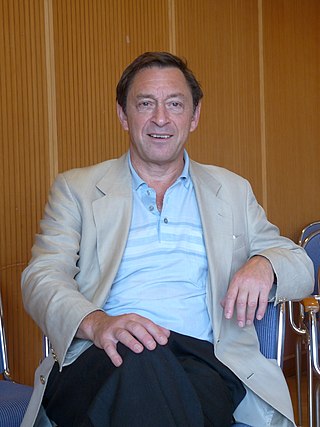
Guy Standing is a British labour economist. He is a professor of development studies at the School of Oriental and African Studies, University of London, and a co-founder of the Basic Income Earth Network (BIEN). Standing has written widely in the areas of labour economics, labour market policy, unemployment, labour market flexibility, structural adjustment policies and social protection. He created the term precariat to describe an emerging class of workers who are harmed by low wages and poor job security as a consequence of globalisation. Since the 2011 publication of his book The Precariat: The New Dangerous Class, his work has focused on the precariat, unconditional basic income, deliberative democracy, and the commons.

John Charles Harriss is an emeritus professor of international studies at Simon Fraser University, visiting faculty at the London School of Economics and Professorial Associate at SOAS. In 2017, Harris was elected a Fellow of the Royal Society of Canada.

Jason Edward Hickel is an anthropologist and professor at the Autonomous University of Barcelona. Hickel's research and writing focuses on economic anthropology and development, and is particularly opposed to capitalism, neocolonialism, as well as economic growth as a model of human development.